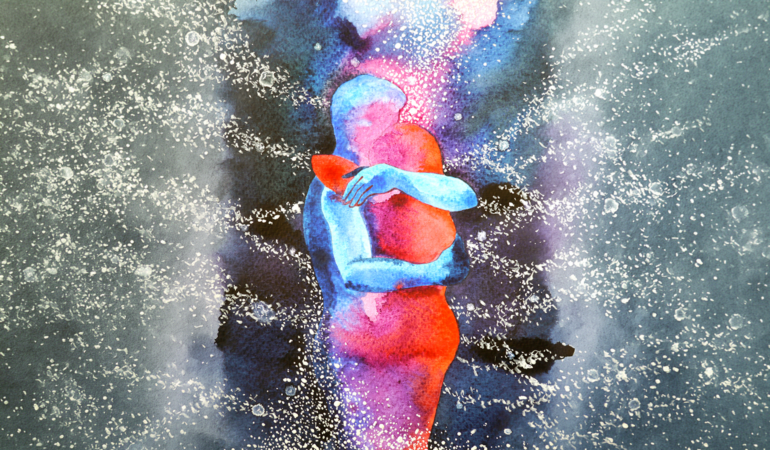The AAMFT Podcast All-Star Panel Series: A Celebration of Systemic Therapy’s Common Core
The eighth season of the AAMFT Podcast in 2026 celebrates an unprecedented gathering of systemic therapy's most influential voices. Eight uniquely curated panels bring together 23 master therapists and model developers to talk about the heart and soul of systemic therapy. These supersized episodes offer our audience an intimate look at how diverse theoretical orientations [...]
Read MoreFamily Therapists in Schools: Where We’ve Been and Where We’re Going
This article is a collaborative effort by members of AAMFT’s Family Therapists in Schools Topical Interest Network and school-based colleagues (contributors are listed in alphabetical order). Imagine that you are a high school student, depressed and anxious over conflict at home. Your parents are arguing, and their divorce seems imminent. You have checked in with [...]
Read MoreFriendship, Partnership, and Love Affair: Helping Couples Navigate the Differences so They Can Thrive Together
I see a committed relationship as having three aspects: friendship, business partnership, and love affair. Friendship is liking/respecting/enjoying a partnership, enjoying time and activities together, and, hopefully, having adventures. Business partnership is about logistics running a household (shopping, cleaning, cooking, managing money, cars, etc.), and parenting, whether that’s children and/or pets. A love affair is [...]
Read MoreWhen Family Therapists Go Back Home to Their Families: Notes from an Autoethnographic Practice
Family therapists can spend a lifetime studying theories about family patterns, intergenerational communication, recursive loops, and the dance between closeness and separateness, to name a few. During our training, we are taught to map triangles, track emotional processes across decades, and listen for the stories that shape a person’s sense of personhood. And yet, family [...]
Read MoreAutoimmune Neuropsychiatric Disorders in Children
This article provides an overview of Pediatric Acute-Onset Neuropsychiatric Syndrome (PANS) and Pediatric Autoimmune Neuropsychiatric Disorders Associated with Streptococcal Infections (PANDAS): A Beginner’s Guide for Mental Health Providers and Allied Professionals Pediatric Acute-Onset Neuropsychiatric Syndrome (PANS) is a clinical condition characterized by the sudden onset of severe neuropsychiatric symptoms in children, most notably obsessive-compulsive behaviors [...]
Read MoreWhen the Chart Is Watching Back: AI, Consent, and Control in Teletherapy Documentation
Picture this: you finish a teletherapy session, rich with layered family dynamics, unspoken tensions, and a breakthrough moment in relational co-construction, and open the electronic health record to chart. But the platform has already been at work. An AI-generated summary sits there, neatly formatted, highlighting symptoms, diagnoses, and suggested next steps. It asks for your [...]
Read MoreThe Role of MFTs in Uncertain Political Times: Two Families as an Example
No matter what side of the political spectrum you find yourself, I think all will agree that the past year has been a roller coaster ride in United States (US) politics. Politics have ranged from usual polarizations, arguments, and stuck positions, to abuse, killings, overt racism, and heightened policing, to name a few. The recent [...]
Read MoreBeyond Remission: How Marriage and Family Therapists Support Oncology Survivorship
The completion of active cancer treatment is often associated with anticipated relief for most individuals and families. Appointments are spaced out, side effects subside, and crisis-related language is eased. However, for many survivors and their loved ones, this phase is characterized by less finality and more ambiguity. Although treatment may have ended, the psychological, relational, [...]
Read MorePerimenopause and Early Trauma: A Systemic Approach for MFTs
Perimenopause, the transitional phase before menopause, brings hormonal shifts that manifest as hot flashes, mood swings, and sleep disturbances, impacting not just the individual but their entire family system (Santoro, 2016). Recent research reveals that early trauma, such as childhood abuse or adversity, intensifies perimenopause symptoms, creating unique challenges for families (Carson et al., 2022; [...]
Read MoreNo Lawyers, No Courtroom, No “Battle”: The benefits of non-attorney mediation in family disputes
In these intense and polarized times, it sometimes seems like every disagreement and dispute, big or small, ends in locked horns, a fight to the finish, or a falling out. From political discourse to social media interactions, it can feel like we’ve forgotten how to cooperate, find common ground, and work together toward creative solutions. [...]
Read More








